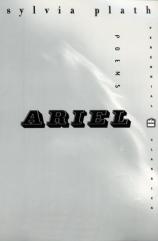Ariel
About the Book
Ariel
"Love set you going like a fat gold watch."
"From the bottom of the pool, fixed stars /
Govern a life."
Between the first and last words of this remarkable collection, between love and life, between the infant's "clear vowels" of "Morning Song" and the final poem's "white skull" and "Words dry and riderless," Sylvia Plath created an unprecedented poetic vision. First published in England in 1964, and in the United States a year later, Ariel was, in the words of then-editor Frances McCullough, "a sensation." The impact of these poems in England and America alike was astonishing.
Perhaps the most famous, still, of the Ariel poems are "Lady Lazarus" and "Daddy," and those that present a sensitive young woman battling the forces of society and her own demons to achieve an imaginative transformation determined solely by herself. Grappling with both the minutiae of daily life and historical and mythic grandeur, these poems seem to be an attempt to raise existence--and the poet herself--to a new level of transcendence and intensity. Alternately brutal and gentle, slashing and caressing, Plath's verses have been seen as both out of proportion and unbalanced, on the one hand, and unprecedentedly focused and courageous. Whether speaking as Mary, Medusa, or herself, Sylvia Plath fashioned poems that remain "proof of the capacity of poetry to give to reality the greater permanence of the imagined" (George Steiner).
Ariel
- Publication Date: February 3, 1999
- Paperback: 128 pages
- Publisher: Harper Perennial Modern Classics
- ISBN-10: 0060931728
- ISBN-13: 9780060931728




